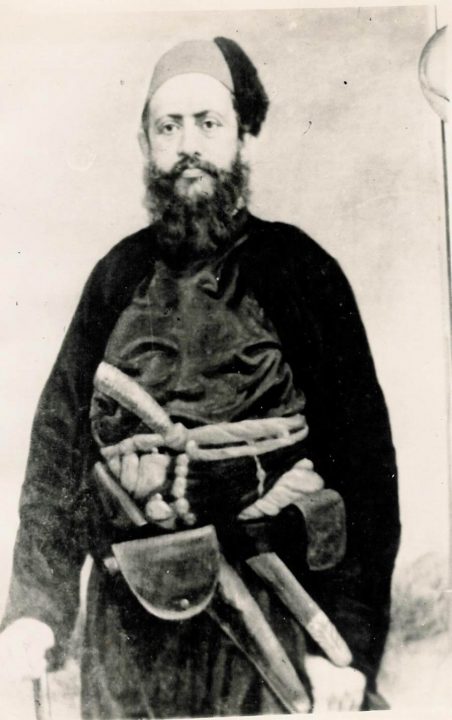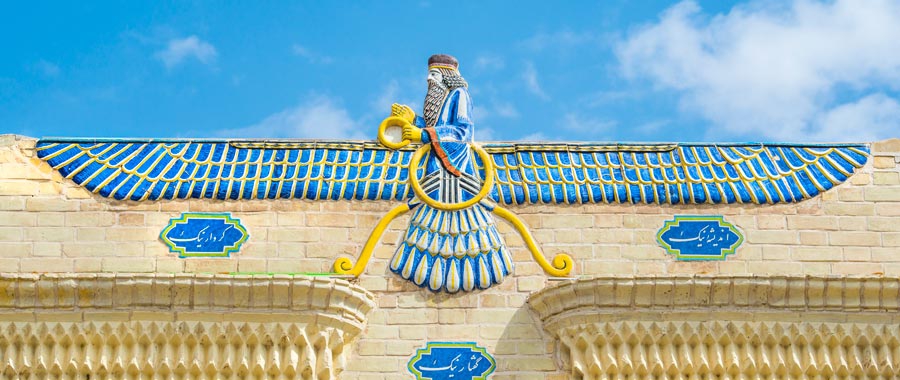The views expressed in our content reflect individual perspectives and do not represent the authoritative views of the Baha'i Faith.
It’s a recognized fact that many teachers of wisdom have appeared throughout human history.
The Baha’i writings have identified a few of the greatest among them — using the phrase “Manifestations of God,” defined as a term applied to certain prophets and founders of global religions, such as Moses, Zoroaster, Buddha, Jesus Christ, Muhammad, the Bab and Bahaʼuʼllah.
One such founder of a world religion, Zoroastrianism, is the Persian prophet Zoroaster – whose name, in the original Persian, was Zarathushtra. In this remarkable passage from the Baha’i writings, Baha’u’llah refers to Zoroaster as “Him Who is the Spirit of purity:”
The distinguished Sahib, may God graciously aid him, hath written that the Hindus and Zoroastrians do not permit or welcome outsiders who wish to join their ranks. This runneth counter to the purpose underlying the advent of the Messengers of God and to that which hath been revealed in their Books. For those Who have appeared at God’s behest have been entrusted with the guidance and education of all people. How could they debar a seeker from the object of his quest, or forbid a wayfarer from the desire of his heart? The fire-temples of the world stand as eloquent testimony to this truth. In their time they summoned, with burning zeal, all the inhabitants of the earth to Him Who is the Spirit of purity. – Baha’u’llah, The Tabernacle of Unity
Clearly, when Baha’u’llah wrote about “The fire-temples of the world” that “summoned, with burning zeal, all the inhabitants of the earth to Him Who is the Spirit of purity,” he referred to the prophet Zoroaster. Baha’u’llah, moreover, in an extraordinary act of solidarity with Zoroaster, also refers to himself as the “He Who is the Spirit of Purity:”
… O children of dust! He Who is the Spirit of Purity saith: In this glorious Day whatsoever can purge you from defilement and ensure your peace and tranquillity, that indeed is the straight Path, the Path that leadeth unto Me. To be purged from defilement is to be cleansed of that which is injurious to man and detracteth from his high station – among which is to take undue pleasure in one’s own words and deeds, notwithstanding their unworthiness. True peace and tranquillity will only be realized when every soul will have become the well-wisher of all mankind. He Who is the All-Knowing beareth Me witness: were the peoples of the world to grasp the true significance of the words of God, they would never be deprived of their portion of the ocean of His bounty. In the firmament of truth there hath never been, nor will there ever be, a brighter star than this. – Ibid.
So what does it mean when Baha’u’llah refers to Zoroaster as “Him Who is the Spirit of purity” and also to himself in the same way? This can only mean that Baha’u’llah and Zoroaster are kindred spirits, to say the least.
In a tablet he addressed to a certain “Bahram,” who had apparently asked about Zoroaster, Bahaʼuʼllah wrote that Zoroaster was sent by God and charged with guiding mankind aright, that it was by his hand that the fire of love was kindled with the flame of the love of God, and that he brought divine laws and ordinances. But then Baha’u’llah went on to say that the people, heedless as they were, did not realize the station of Zoroaster or recognize his revelation. In that vein, Baha’u’llah called out the Shíʻih Muslims in particular, who rejected Zoroaster out of ignorance. (See the tablet that begins on this page for the full text)
Although not in direct response to Baha’u’llah’s admonition, the Islamic Republic of Iran recently decided to officially observe Zoroaster’s birthday annually on March 26 as a national holiday.
In a discourse given at the Hotel Victoria in Alexandria, Egypt on March 3, 1912, Abdu’l-Baha spoke glowingly of Zoroaster. Among many other things, he compared Zoroaster to a resplendent sun who came invested with a brilliant and conclusive proof; states that he illumined the benighted land of Persia and enlightened her people; and confirms that Zoroaster’s teachings were clearly heavenly, and that his counsels were obviously divine:
But for the appearance of Zoroaster, Persia would have been totally effaced and destroyed – and were it not for the teachings of Zoroaster, the Persians would have vanished without a trace. Utterly deprived would they have been of the excellences of humanity, and entirely shut out as by a veil from the outpourings of heavenly grace. – Provisional translation by Adib Masumian
In response to a question about the timing of Zoroaster’s advent, Abdu’l-Baha wrote in one of his tablets that Zoroaster came after Moses, and added that “this has also been recorded in histories.” (Provisional translation by Adib Masumian)

Baha’u’llah’s further teachings on Zoroaster depend on a close reading of answers to various questions posed by a prominent Zoroastrian, Maneckji Limji Hataria (1813–1890), who was “appointed as the first emissary of the Society for the Amelioration of the Condition of Zoroastrians in Persia” and “worked tirelessly to rebuild the communal leadership and religious infrastructure of the Zoroastrians and, in Tehran, to remove the jezya” [poll-tax].
Baha’u’llah not only praised Zoroaster as a divine messenger, he also defended him against the misunderstandings and slanders often directed at his Faith and his followers:
A divine Manifestation Who hath extolled and magnified the one true God, exalted be His glory, Who hath borne witness to His knowledge and confessed that His Essence is sanctified above all things and exalted beyond every comparison – such a Manifestation hath been called at various times a worshipper of the sun or a fire-worshipper. How numerous are those sublime Manifestations and Revealers of the Divine of Whose stations the people remain wholly unaware, of Whose grace they are utterly deprived, nay, God forbid, Whom they curse and revile! – Baha’u’llah, The Tabernacle of Unity
Here, Baha’u’llah’s words, “such a Manifestation hath been called at various times a worshipper of the sun or a fire-worshipper,” refers to the prophet Zoroaster — since, for centuries, Zoroastrians have been called (and thereby criticized and often reviled) as “sun-worshippers” and “fire-worshippers.” Baha’u’llah further explained:
One of the great Prophets Whom the foolish ones of Persia in this day reject uttered these sublime words: “The sun is but a dense and spherical mass. It deserveth not to be called God or the Almighty. For the almighty Lord is He Whom no human comprehension can ever conceive, Whom no earthly knowledge can circumscribe, and Whose Essence none hath ever been or shall ever be able to fathom.” Consider how eloquently, how solemnly He hath affirmed the very truth that God is proclaiming in this day. And yet He is not even deemed a believer by these abject and foolish ones, let alone seen as possessed of a sublime station! In another connection He said: “All existence hath appeared from His existence, and were it not for God, no creature would have ever existed and been attired with the raiment of being.” – Ibid.
In this passage, Baha’u’llah further defended Zoroaster from the charge of being a “sun-worshipper,” a stock invective and insult, by saying that Zoroaster has stated, in essence, that: “The sun is but a dense and spherical mass. It deserveth not to be called God.”
All of this clearly tells us how highly Baha’u’llah and Abdu’l-Baha praised and honored Zoroaster, thereby immortalizing his name and memory. The Baha’i teachings universalize, renew, and expand Zoroaster’s sublime teachings and ethics, as restated and reconfigured in the Baha’i scriptures, in the Baha’i Calendar, which has strong affinities with the Zoroastrian calendar, and in Baha’i life and service to humanity.
As a direct result, Baha’is worldwide highly honor and respect the prophet Zoroaster.
















Comments
Sign in or create an account
Continue with Googleor